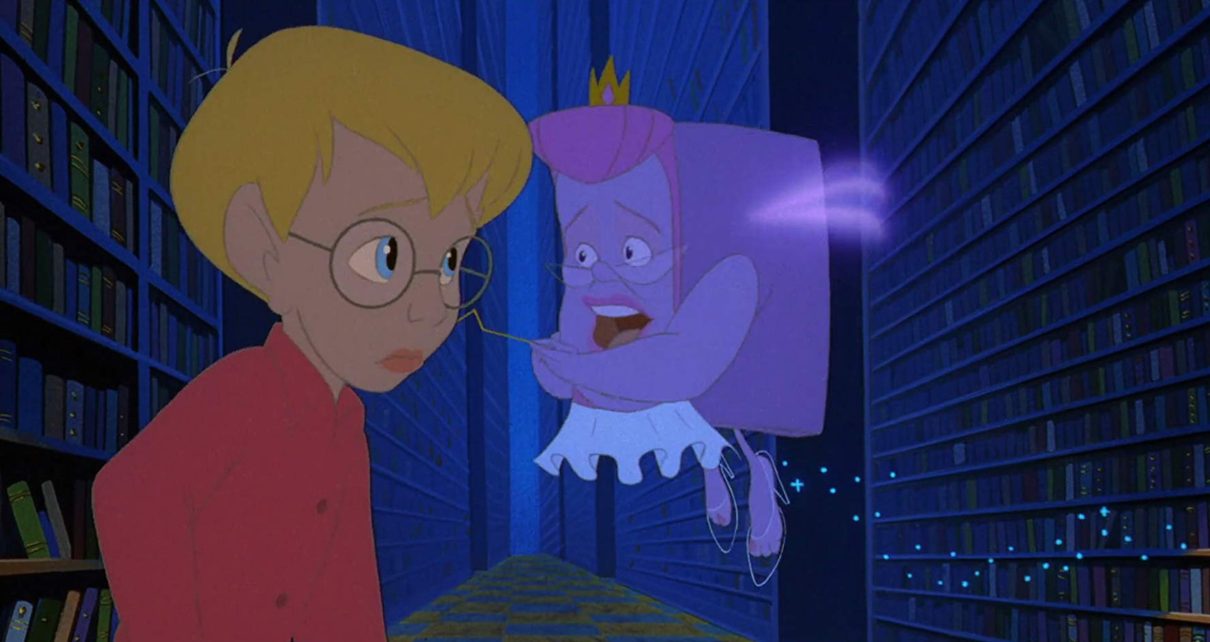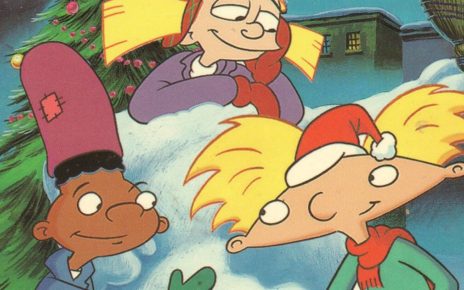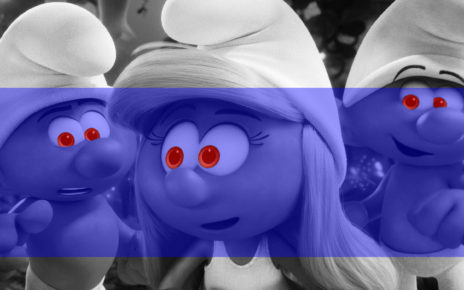Is It Still Good!? is a column measuring the continuing cultural strength of past animated products in the present. We use the mathematical formula (Force = Mass x Acceleration) as our model, where (Is It Still Good!? = Product x Decay Over Time, or, DOT). It is a proven model. Trust us. We’re the experts.
The Movie
The Pagemaster (1994)
The Creators
David Kirschner (producer and writer); Paul Gertz (producer); Joe Johnston, Pixote Hunt (directors); David Casci, Ernie Contreras (writers)
The Logline
“A cowardly boy, who buries himself in accident statistics, enters a library to escape a storm, only to be transformed into an animated illustration by the Pagemaster. He has to work through obstacles from classic books to return to real-life.”
The Memory
Rotten Tomatoes critic Christy Lemire says “The Pagemaster is the kind of movie first-grade teachers would have popped into the VCR in the 1990s to kill time on a rainy afternoon.” She’s not wrong—I watched the film countless times during elementary school, mostly during rainy days, much to my delight.
The Product
The film, which turned 25 this November, stars Macaulay Culkin as Richard Tyler, a pessimistic 10-year-old whose fear is controlling his life—“The kid’s afraid of tuna fish sandwiches!” One day, seeking shelter from a storm, Richie stumbles into Mr. Dewey’s (Christopher Lloyd) mazelike library. There, he’s transformed into a cartoon and must journey with books Adventure (Patrick Stewart), Fantasy (Whoopi Goldberg), and Horror (Frank Welker) through library stacks and stories come alive to find the exit sign. Along the way, Richie steps into the worlds of Moby Dick, Treasure Island, and Gulliver’s Travels, meets fictional characters like Dr. Jekyll and Mr. Hyde (Leonard Nimoy), and emerges a braver version of himself.
Produced by Turner Feature Animation, The Pagemaster was animated by the same crew who worked on films like An American Tail (on which Kirschner is also credited as a writer) and The Land Before Time. Composer James Horner created the music for all three films. Fun fact: The Pagemaster only features works of fiction that were written before 1923, and are thus part of the public domain.
The film was one of the first to combine live-action and animation—The Pagemaster contains just 17 minutes of real-world footage (including a quick cameo by Ed Begley Jr. as Richie’s dad), with the bulk of the story taking place in the animated labyrinth of the library.
When the movie debuted in 1994, it was panned by critics: Roger Ebert called the film “sad and dreary.” Culkin was nominated for a “Worst Actor” Razzie (a bit harsh, if you ask me). It’s still certified “rotten” on Rotten Tomatoes. As Brian Lowry writes for Variety, the movie’s premise is “wispy” and “comes off as propaganda for the public library.” (Which is bad why?) And many reviewers criticized the animation itself; The New York Times deemed the movie “cheap-looking.”
But, when I watched The Pagemaster as a young, bookish kid, none of this bothered me—I was enchanted. In the film’s library, there’s a large rotunda with a mural painted on the ceiling containing depictions of fictional characters surrounding the titular Pagemaster. As a child, watching Richie stare up in wonder at the painting, clutching his new library card, felt familiar. Growing up, my own library had a mural, which always entranced me, revealing new hidden gems upon each glance—“This is a library, mate. Not everything is as it seems.” And my library card, like Richie’s, was a “passport to the wild, unpredictable world of books” where I met fantastic characters, embarked on exciting adventures, and learned there are many ways to have courage.
What adult reviewers saw as flaws in The Pagemaster, I saw as part of the magic; and in fearful Richie Tyler, I saw myself.
Decay Over Time
The movie’s imperfections, which were mostly invisible to me as a child, are more obvious upon rewatching the cartoon. Continuity errors that I missed in elementary school now throw me off: Richie’s shirt, for instance, goes from red to blue and back to red. (Pick a color!) And now, I notice how the movie reduces famous novels to tropes in order to quickly move the film’s plot forward, not bothering to truly grapple with the content of these books.
However, I still find the film’s “dreary” animation captivating in a dark, moody sort of way—the movie’s title sequence opens with swirling blue clouds, eerie choral music, and decorative blue gothic script (aka my ideal aesthetic). The premise of an enchanted library, in which patrons must trek through stories to find the exit, never gets old. I am particularly fond of the bookish insults sprinkled throughout the movie: “overdue shrew,” “that short story,” “ye ain’t got a spine.” The star-studded voice cast is still a delight, and it is my opinion that Christopher Lloyd’s presence in a film always makes it better. (My editor argues it’s not just my opinion, but a cold, hard fact.)
While The Pagemaster is a 25-year-old movie for children, it still has something to offer today, especially when thinking about mental health. Richie is shy and pessimistic, yes, but he’s also anxious. When Richie is scared to approach Dr. Jekyll and Mr. Hyde’s mansion, for instance, Fantasy notes “It’s just a house,” to which he responds “Yeah, but…” Seemingly simple tasks can appear insurmountable and harmless scenarios, overwhelming when a person is anxious. It’s always “just a crowded room” or “only a subway car,” but everyday life can feel very scary—as if “waiting to strike are forces of evil.”
Throughout the film, Culkin’s character struggles to overcome his fear, repeating mantras to himself like “‘I’m ok, I’m ok!’ ‘No I’m not!’” and “This is not good. Really not good.” As someone with anxiety, watching Richie talk himself down from envisioning worst case scenarios and grappling with his snowballing worries makes me feel extremely seen. The film is a useful reminder that mental health is a journey, support systems and friends are indispensable, and books can be comforting escapes and valuable teachers.
Is It Still Good!?
No, but also yes. Watching this film elicits a uniquely 90s nostalgia equivalent to the feeling of attending a Scholastic book fair, annotated brochure in hand. For that reason alone, it’s worth a re-watch.
Thanks for reading The Dot and Line, where we talk about animation of all kinds. Don’t forget to follow us on Twitter and sign up for our newsletter.





